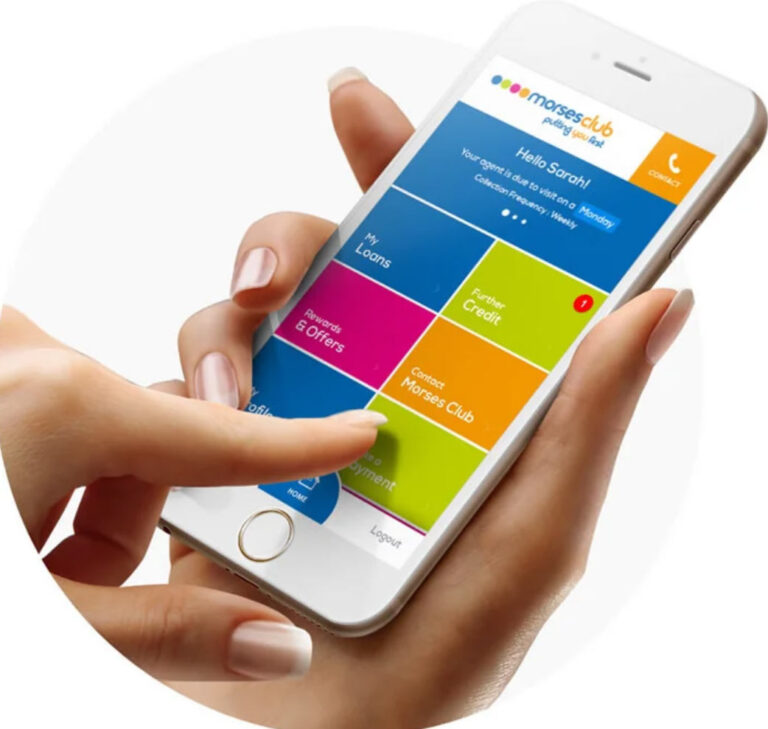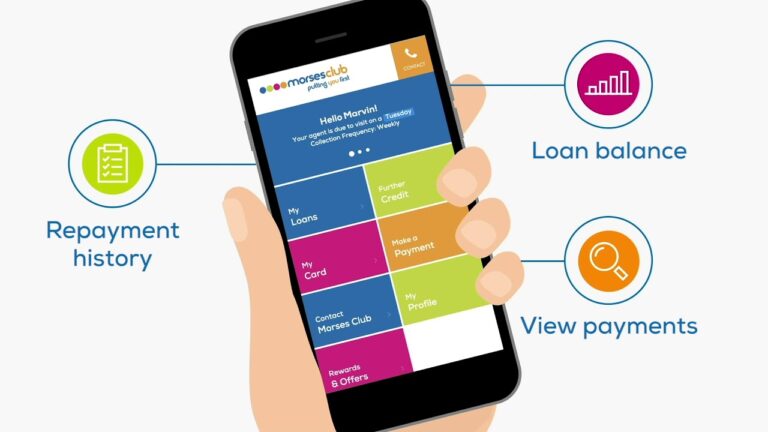Morses Club PLC (LON:MCL), an established provider of non-standard financial services, has provided the following update on trading further to the statement issued on 10th August 2020.
Trading
Against the backdrop of a continued challenging trading environment, Morses Club is making good progress in accelerating its strategy of serving its customers via remote methods of lending and collection.
Customer responses to the launch of remote lending remain positive and subscribers to Morses Club’s online customer portal, which enables remote lending and collection, continue to increase month on month, with over 112,000 customers registered compared with c.78,000 at the end of FY20. In August the Group recommenced face-to-face lending and collection activity in customer homes, in strict accordance with government guidelines. Despite a face-to-face alternative being available, remote lending still represented over 50% of loan volumes issued in August, demonstrating that a greater number of customers are now choosing to utilise Morses Club’s remote lending product.
The Company has continued to reduce its borrowings with the debt position at the end of August 2020 of £14m, comparing favourably to both August 2019 (£23m) and February 2020 (£34m). As at the end of August, Morses Club had headroom of over £9m, which is more than sufficient to meet the peak lending period in December 2020.
Home collected credit
Sales for the 26 weeks to 31 August 2020 were £51.2m compared to £82.2m in the 26-week equivalent period in H1 FY20(1), a decline of 37.7%, and compared to £85.5m reported for the 27-week period to 31 August 2019. Sales have recovered during the period from the initial reductions experienced in April and May 2020. This reduction in April to June 2020 was due to lending only being available to existing customers. The Company attributes the slight reduction in August 2020 to the impact of the various regional lockdowns across the UK. The table below shows monthly HCC sales from the beginning of FY21 as a proportion of the equivalent month in FY20.
| % of prior year | Mar-20 | Apr-20 | May-20 | Jun-20 | Jul-20 | Aug-20 | 26 weeks |
| HCC Sales | 72.4% | 27.7% | 49.7% | 68.0% | 80.0% | 76.6% | 62.3% |
Customer loan repayments for the 26 weeks to 31 August 2020 were £104.5m, compared to £133.2m in the 26-week equivalent period the previous year, a reduction of (21.6%) and £138.2m reported for the 27-week period to 31 August 2019. Repayments remained much more consistent during the period. The table below shows the monthly breakdown of loan repayments from the beginning of FY21 as a proportion of the equivalent month in FY20.
| % of prior year | Mar-20 | Apr-20 | May-20 | Jun-20 | Jul-20 | Aug-20 | 26 weeks |
| HCC Repayments | 84.0% | 72.3% | 79.1% | 78.9% | 79.3% | 78.3% | 78.4% |
Morses Club’s primary measure of collections performance is measured by the amount of cash the Company collects against anticipated collections. The following table illustrates how this has rapidly improved over H1 FY21. As previously reported, the Group achieved a strong performance of 98% in July which marginally reduced to 97% in August, which the Company believes is attributable to the impact of the commencement of regional lockdowns across the UK.
| % of anticipated collections | Mar-20 | Apr-20 | May-20 | Jun-20 | Jul-20 | Aug-20 |
| HCC Collect to terms | 89% | 79% | 89% | 91% | 98% | 97% |
Key to this success was the change in collections from face-to-face to remote methods via the customer portal or remote debit card payments. In H1 FY20, 61% of collections were made face-to-face with 39% made remotely. In H1 FY21 this has shifted dramatically, with 78% of collections now being made remotely and only 22% being made face-to-face.
The reduction in loan repayments reflects the decrease in the size of the loan book and customer numbers, an inevitable outcome when cash collections have remained relatively strong whilst sales have been suppressed, as new customer lending has only recommenced in July. Although customer numbers had been expected to decline over the first half of the year, this decline has been considerably more marked, primarily due to the restrictions on lending to new customers from March 2020 to mid-July 2020, which directly resulted in 30,000 fewer new customers. Morses Club also experienced an increase (7,000 year-on-year) in customers repaying their loans and not requesting further credit, which is thought to be due to the economic uncertainties brought on by Covid-19, making customers more cautious about borrowing.
Encouragingly, the rate of decline in customer numbers has halved in August, following the recommencement of face-to-face transacting, and the Company expects its customer base to stabilise in H2 FY21.
| Customers ‘000’s | Open | Mar | Apr | May | Jun | Jul | Aug | Decrease |
| HCC H1 2020 | 234 | 232 | 229 | 229 | 227 | 225 | 224 | -4% |
| HCC H1 2021 | 220 | 215 | 203 | 191 | 182 | 172 | 170 | -23% |
The numbers above do not include those customers that Morses Club would have ordinarily written off due to bad debts, but under the regulatory measures brought in due to Covid-19 these have remained on the Company’s books. Morses Club continues to work closely with these customers as part of its normal forbearance approach. As a result, the Company is pleased to report that, as at the end of August 2020 it has been able to restore over 4,000 customers back into the active loan book.
In H1 FY21, the gross loan balances of customers reduced by a similar proportion, down 23%.
Customer satisfaction has been maintained at 97% or above during the period from March 2020, reflecting the Company’s ongoing customer-centric approach.
Note 1: 26-week equivalents for the period to August 2019 are calculated by taking 4/5ths of the August 2019 reported numbers in order to adjust for the additional trading week that was included in August 2019.
Digital
Digital sales for H1 FY21 were £9.1m, an increase of 66% compared to H1 FY20. As a result of significant re-engineering of the acquired business from CURO Transatlantic Limited, into Morses Club’s digital subsidiary Shelby Finance Limited, sales were relatively low in the comparative first quarter of FY20. However, sales in the second quarter of FY21 were still 15% ahead of last year, despite a combination of tightening credit score requirements for customers as well as the impact of lower consumer demand.
| Digital Sales £’k | Q1 | Q2 | H1 |
| H1 FY21 | 4,193 | 4,938 | 9,131 |
| H1 FY20 | 1,202 | 4,287 | 5,489 |
| Increase | 249% | 15% | 66% |
Digital collections made good progress during H1 FY21. Whilst Q1 FY21 was down 44% against Q1 FY20, this was primarily driven by the collect-out of the acquired loan book from CURO Transatlantic Limited, Q2 FY21 collections are a better comparison of progress made, with collections 39% up, despite the challenging market conditions. Overall, collections for the period were down 21% year-on-year.
| Digital collections | Q1 | Q2 | H1 |
| Change YOY | -44% | 39% | -21% |
The strong digital collections performance in Q2 FY20 was not only driven by stronger sales volumes but also by an improvement in debt quality, with collections made compared to terms improving by 7% when compared to H2 FY20.
Average product mix in H1 FY21 has materially changed compared to H1 FY20, with the average product length now 6.9 months compared to 5.2 months in the previous period. This reflects a deliberate move away from the 3-month credit product where, in an extremely competitive sub-sector, the margins were proving insufficient to cover the cost of customer acquisition and credit losses. We continue to monitor competition in the 3-month product sector and will revisit this product should market conditions change.
| Product mix | FY20 H1 | FY21 H1 |
| 3 months | 46.1% | 13.0% |
| 6 months | 36.3% | 47.0% |
| 9 months | 17.6% | 39.0% |
| > 12 months | 0.0% | 1.0% |
| Total | 100.0% | 100.0% |
Customer numbers ended the period where they began. Numbers fell between March and June 2020 as the impact of Covid-19 on customer demand and increasingly stringent lending criteria suppressed sales, before a robust recovery in July and August 2020.
| 000’s | Feb-20 | Mar-20 | Apr-20 | May-20 | Jun-20 | Jul-20 | Aug-20 |
| Digital customers | 20 | 20 | 18 | 17 | 16 | 18 | 20 |
The impact of Covid-19 on the overall business has impacted the trajectory of Morses Club’s Digital business to profitability and, whilst performance compared to last year is very positive, the trajectory of cash and sales has been impacted by the fall in customer demand, as Morses Club’s focus on the quality of its lending has led to much lower volumes of sales than our pre-Covid forecast anticipated. It is now expected that the digital business will reach a break-even position in Spring 2022. The fulfilment of significant re-engineering activity in our digital business is broadly complete, and the introduction of a new loan management platform which allows for the integration of linked banking and credit products is due to be launched in H2 FY21.
Demand for e-banking current account products remains stable, with active, fee-generating customers standing at c. 15,000 at the end of August 2020, compared to c. 16,000 at acquisition (end of June 2019). Further brand and product enhancements are underway in H2 FY21, with the introduction of the U Money brand.
Customer demand for linked banking and credit products remains encouraging, with independent market research finding that 50% of customers would like a linked banking and credit product to be available, with strong demand in the younger age customer demographic for these products, rising to more than 67% in the 36-55 age bracket.
The Group has continued to implement structural changes to the business, with employees continuing to work from home until the end of the year. Further restructuring of the Group’s property portfolio is progressing as a result and only limited opening of the Company’s contact centre based in Nottingham is planned until the end of the calendar year.
FY20 results
The audit process for the Company’s FY20 results continues. Morses Club will update the market on the announcement date for its full year results in due course, with results confirmed to be announced no later than 27th November 2020.
Paul Smith, CEO of Morses Club commented,
“In response to the current challenging trading conditions, we are accelerating all aspects of the digitalisation of our business, not just as a response to the ongoing impact of Covid-19, but to create a new model for our business to the benefit of our customers, employees and agents.
“We are encouraged by our customers’ response to our remote lending product and we have seen improvements in lending and collections in our HCC division since the launch of remote lending, initially to existing customers, in April 2020. Shelby Finance continues to make good progress, with its broader product offering attracting a more diverse customer base and is set to drive growth in the medium term.
“Service and safety are intrinsically linked in all our decision making, so that satisfying customer demand and adapting all aspects of our service to the new world we live in is at the heart of our strategy. We have not changed our approach but have accelerated delivery of key programmes with the digital and HCC divisions increasingly working more closely together to deliver for our customers.”






































